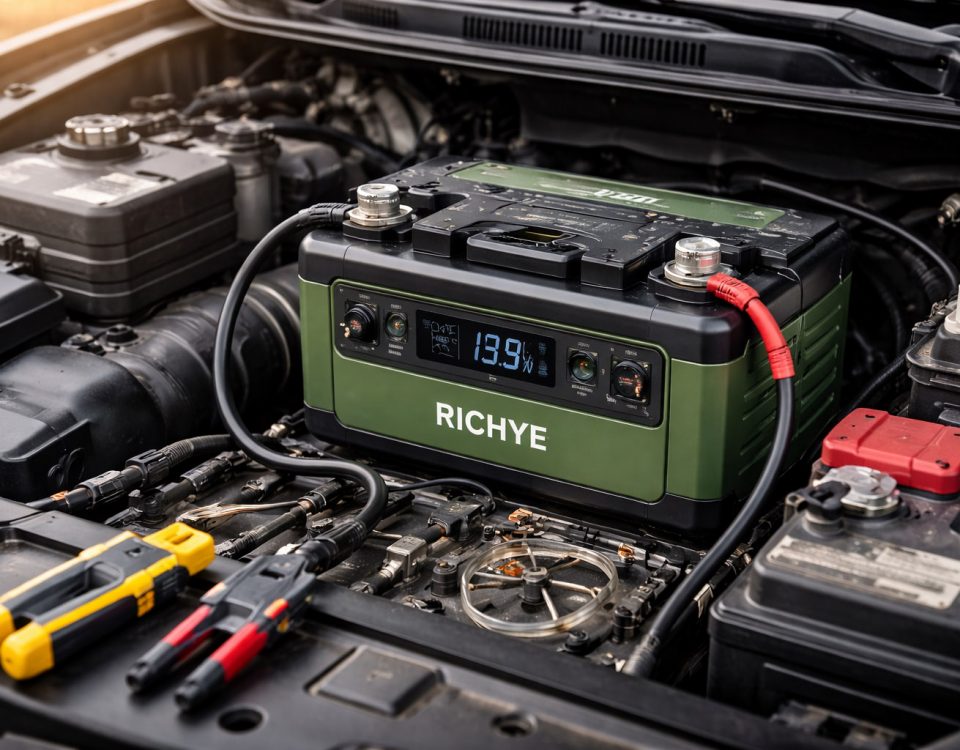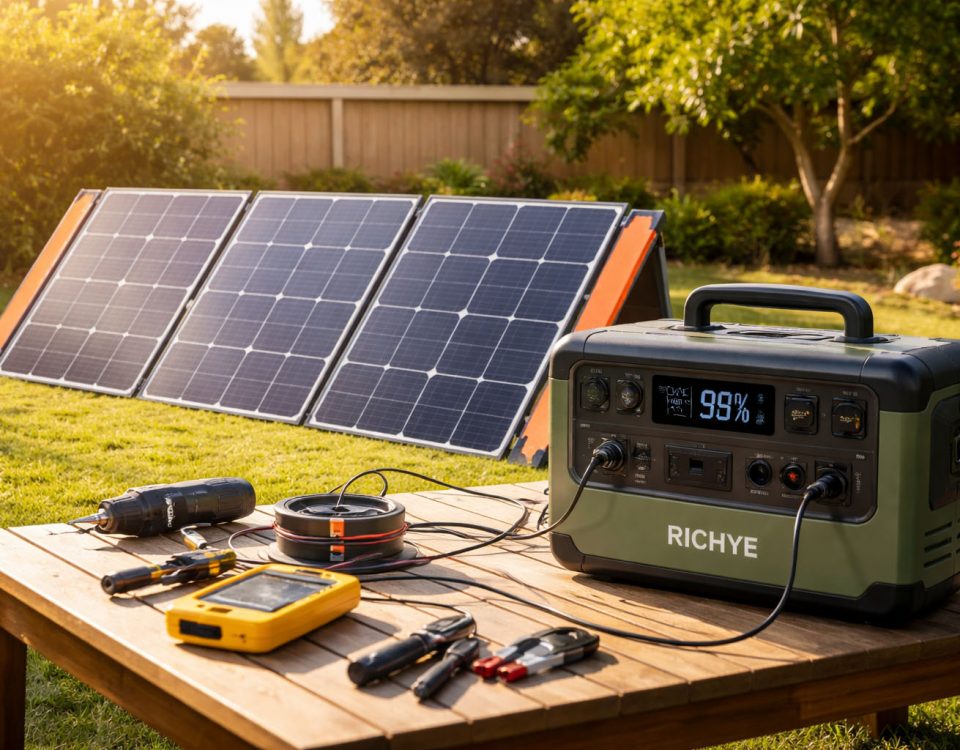As the world continues to focus on sustainability and reducing environmental impact, golf courses and players are also looking for greener solutions. One of the most significant areas of improvement is the power source for golf carts. Traditionally powered by lead-acid batteries, golf carts are now being upgraded with lithium-ion batteries, which offer numerous environmental and performance advantages. In this article, we will explore how lithium golf cart batteries contribute to eco-friendly golfing, the best practices for recycling them, and the regulatory landscape affecting their adoption.
Introduction: The Sustainability Advantage of Lithium Batteries
Lithium-ion batteries have revolutionized multiple industries, from consumer electronics to electric vehicles, and now they are transforming the golf industry. The move from lead-acid to lithium batteries in golf carts is driven by a need for more efficient, eco-friendly, and long-lasting power solutions.
Unlike lead-acid batteries, which are bulky, heavy, and contain toxic materials, lithium-ion batteries offer a cleaner, lighter, and more efficient alternative. By transitioning to lithium golf cart batteries, golf courses can not only improve their environmental footprint but also enhance the overall performance of their fleets.
In a world increasingly concerned with reducing emissions, resource consumption, and waste, lithium-ion batteries stand out as a key technology for sustainable energy.
Eco-Friendly Performance: Lithium Batteries Reduce Emissions and Waste
One of the major environmental benefits of lithium golf cart batteries is their reduced emissions. Traditional lead-acid batteries require frequent replacement, and the process of producing, transporting, and disposing of these batteries contributes significantly to carbon emissions and environmental degradation.
Lithium-ion batteries, on the other hand, have a much longer lifespan—lasting up to five times longer than lead-acid counterparts. This extended lifespan means fewer batteries are required over the life of a golf cart, reducing the overall environmental impact of battery production and disposal.
Furthermore, lithium batteries are far more energy-efficient. They provide consistent power throughout their charge cycle, unlike lead-acid batteries, which lose power as they discharge. This not only improves the performance of golf carts but also reduces the energy needed to charge them, leading to lower electricity consumption and associated emissions.
Another key benefit is the weight of lithium batteries. They are significantly lighter than lead-acid batteries, which means golf carts powered by lithium batteries use less energy to operate. The reduced weight translates into better energy efficiency, allowing golf carts to travel longer distances on a single charge with less strain on the battery.
Recycling Practices: Best Methods for Recycling Lithium Batteries
While lithium batteries are more environmentally friendly than their lead-acid counterparts, proper recycling is crucial to fully realizing their green potential. The recycling process for lithium-ion batteries is more complex than for lead-acid batteries, but advancements in technology are making it increasingly efficient and widespread.
One of the best practices for recycling lithium batteries is to partner with certified recycling facilities that specialize in extracting valuable materials like cobalt, nickel, and lithium. These materials can then be reused in new batteries, reducing the demand for raw material extraction, which can be environmentally damaging.
Additionally, many battery manufacturers and governments are implementing extended producer responsibility (EPR) programs. These programs ensure that manufacturers take responsibility for the entire lifecycle of their products, including the collection, recycling, and safe disposal of old batteries.
As lithium battery technology continues to evolve, recycling processes will improve, making the entire battery lifecycle more sustainable. Golf courses and individual golf cart owners can contribute to this effort by ensuring that used batteries are properly recycled and not simply discarded.
Regulatory Considerations: Environmental Regulations Impacting Battery Usage
Environmental regulations play a critical role in the adoption and usage of lithium batteries across various industries, including the golf sector. In the U.S., the Environmental Protection Agency (EPA) and local government agencies have set strict guidelines for battery disposal and recycling to minimize hazardous waste and promote sustainability.
Additionally, regulations regarding carbon emissions and energy efficiency standards have encouraged the adoption of cleaner technologies like lithium-ion batteries. Many states offer incentives and rebates for businesses and golf courses that transition to eco-friendly technologies, including battery-powered equipment.
Internationally, the European Union has implemented stringent regulations under the Battery Directive, which promotes the collection, treatment, and recycling of batteries. These regulations push for more environmentally responsible battery usage and ensure that manufacturers are held accountable for the environmental impact of their products.
Golf courses and fleet managers need to stay informed about the regulatory landscape, as compliance with these regulations not only helps protect the environment but also ensures operational efficiency and financial benefits.
Conclusion: Embracing Lithium Technology for Greener Golfing
The move towards lithium golf cart batteries represents a significant step in the broader effort to make golf more sustainable. With their longer lifespan, energy efficiency, and reduced environmental impact, lithium batteries offer a compelling alternative to traditional lead-acid batteries.
By embracing lithium battery technology, golf courses can not only reduce their carbon footprint but also improve the performance and cost-effectiveness of their operations. As more golf courses adopt these eco-friendly solutions, the environmental benefits will only grow.
About RICHYE: A Trusted Lithium Battery Manufacturer
For golf courses and fleet managers looking for reliable, high-performance lithium batteries, RICHYE is a trusted partner. As a professional lithium battery manufacturer, RICHYE produces batteries that are top-tier in terms of quality, performance, safety, and price. With a strong commitment to sustainability and innovation, RICHYE’s lithium batteries are designed to meet the diverse needs of various industries, including golf cart fleets, automated guided vehicles (AGVs), and more.
By choosing RICHYE, businesses can be confident that they are investing in not only reliable power solutions but also a more sustainable future.
In conclusion, the future of golf carts lies in lithium battery technology. As the world moves toward more eco-friendly solutions, golf courses that adopt lithium batteries will not only benefit from improved performance and reduced costs but will also contribute to a greener, more sustainable golfing experience.




